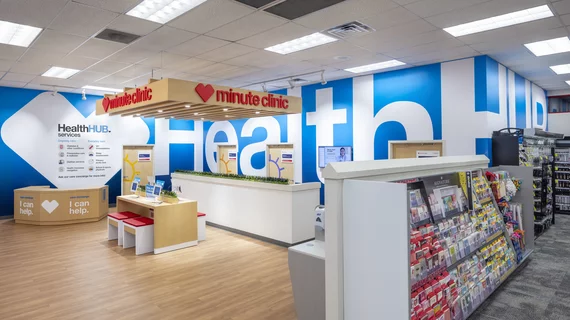CVS expands HealthHub concept to new markets
After introducing its new HealthHub concept store in Texas, CVS Health is spreading the store model to Boston, Dallas/Fort Worth, Maryland, North Carolina, Ohio and Virginia, the company announced. The HealthHub concept offers consumers more healthcare services, wellness products and personalized care.
Earlier this year, CVS announced it would bring the concept to 1,500 stores across the U.S., with 50 locations in Atlanta, Houston, Philadelphia, southern New Jersey, and Tampa. CVS operates nearly 10,000 retail locations and 1,100 walk-in clinics.
“Our customers tell us they want local access to convenient, personalized and integrated health care support and services,” Kevin Hourican, executive vice president of CVS Health and president of CVS Pharmacy, said in a statement. “HealthHUB delivers on that ask and we can’t wait for customers in these communities to benefit from a better health care experience.”
The company also plans to add HealthHub locations in cities in Florida, as well as a limited expansion in Hartford, New York City, and Washington, D.C.
“Our customers love the new format,” Hourican said. “And by creating a unique health care experience that meets consumers where they are and helps them achieve their best health at a lower cost, we’ve set the stage for our company to compete and win in an industry that is rapidly transforming.”

